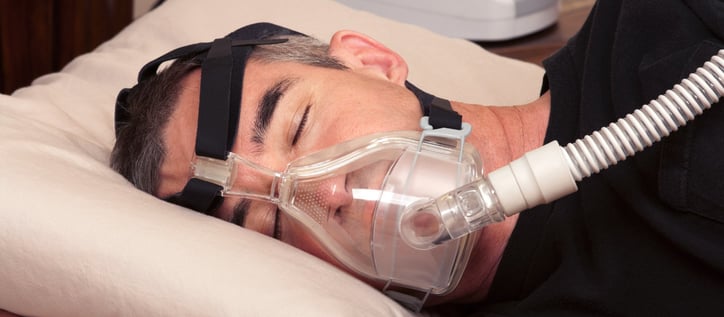
If you have obstructive sleep apnea and use a CPAP device while sleeping, you might find it difficult to fall asleep or stay asleep throughout the entire night. It does take some time to adapt to using a CPAP device because of the sound, the feel of the mask on your face and of course the air pushing on your face. But it’s important to continue using your CPAP as prescribed to keep your sleep apnea under control and speak with your physician about any concerns you have about using it.
Getting used to your CPAP might take a while, but you should also consider some other possibilities as to why you are not getting a good night’s sleep. Consider the following tips that can help you sleep better in spite of your CPAP device.
- Add More Magnesium to Your Diet
An easy way to get a better night’s sleep is to increase the amount of magnesium in your diet. Deficiencies in this crucial element can cause insomnia and prevent you from sleeping soundly. Doctors believe that almost 80 percent of people are magnesium-deficient because they are not eating foods that are rich in this mineral. However, it might not be entirely their fault either.
Foods, including dark leafy greens like spinach and Swiss chard or vegetables like broccoli, normally have high levels of magnesium, but today mass-grown vegetables may have lower levels of magnesium because it has become depleted in some grown fields and it’s not always replenished. If you cannot grow your own greens to eat, the next best thing is to purchase organic produce locally.
You can also add magnesium to your diet through eating almonds, pumpkin seeds and dark chocolate. When in doubt, speak to your physician who can test your blood to see if you have a magnesium deficiency. He or she can determine how much magnesium you need to add to your diet.
- “The Change” Could Be Changing Your Sleep
If you’re a woman going through menopause and experiencing problems falling asleep or getting a full night’s rest, you’re not alone. Over 60 percent of post-menopausal women experience insomnia and have problems sleeping through the night because of hot flashes and night sweats. To avoid going on medication to control these menopause symptoms, you could sleep better by:
- Wearing nightclothes that are made from breathable, lightweight fabrics
- Changing out heavier bedding to several layers of lightweight cotton sheets and blankets that allow for better air circulation in bed
- Cutting back on spicy or acidic foods that can make you more prone to hot flashes
- Introducing foods and beverages into your diet that contain soy because they can help minimize hot flashes
- Avoiding caffeine, alcohol, and nicotine at least four hours prior to your bedtime
- Cut Back on Cat Naps
While you might think that grabbing a nap during the day will help make up for a poor night’s sleep, you might be sabotaging that night’s sleep. Instead of catching up on sleep, a nap resets your body’s internal alarm clock and its sleep cycle and when that happens, it’s difficult to fall asleep when you should be sleeping at night.
Whenever possible, resist the urge to take a nap or keep it as short as possible. It’s a better idea to drink a glass of cold water instead of a caffeinated drink, eat a snack high in protein or take a walk to get some fresh air. Try to stick to a steady bedtime each night and only take naps if you are sick so you can sleep better every night.
Easy Steps to Sleep Better
You can help improve your sleep and fall asleep faster.
- Take at least an hour to wind down before going to bed
- Avoid obsessing over whether you will be able to fall asleep
- Get regular exercise during the daytime
- Limit your alcohol consumption
- Limit your electronics use before bedtime and keep them out of your bedroom
- Go to sleep and get up at the same time each day
- Keep a sleep diary to track what could be causing your insomnia or interrupting your sleep
If you are still having problems sleeping after several months of CPAP use, it’s time to speak to your physician about other possible treatments for your sleep apnea or insomnia that will allow you to sleep better at night. One possible treatment might be Inspire Therapy for sleep apnea offered by Iowa City ASC.





